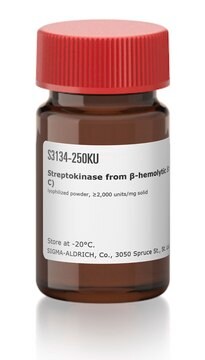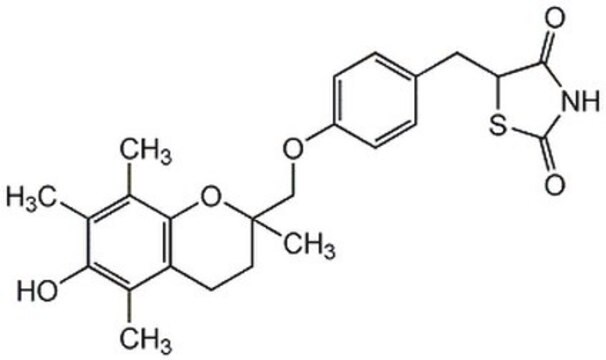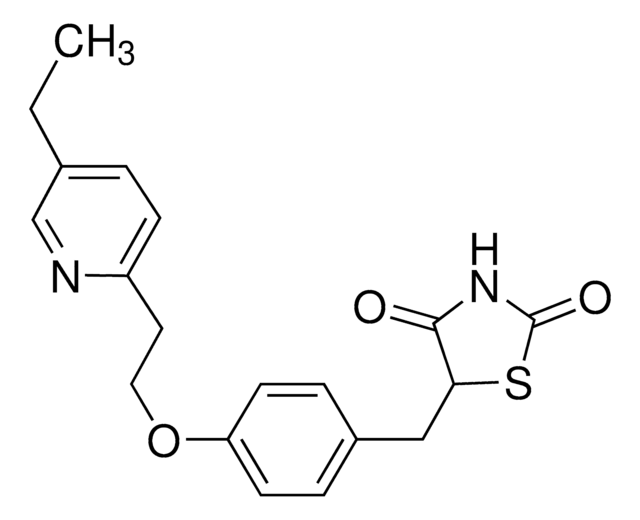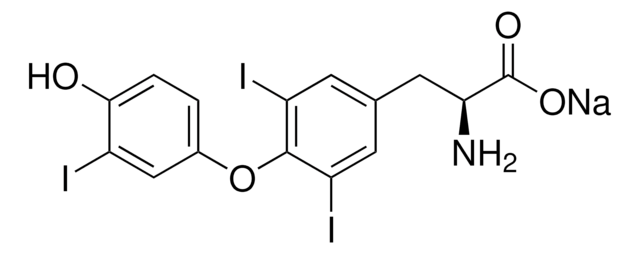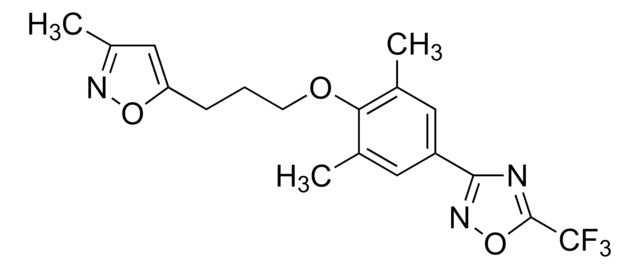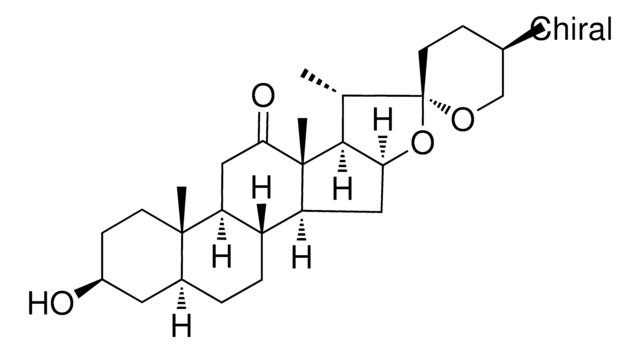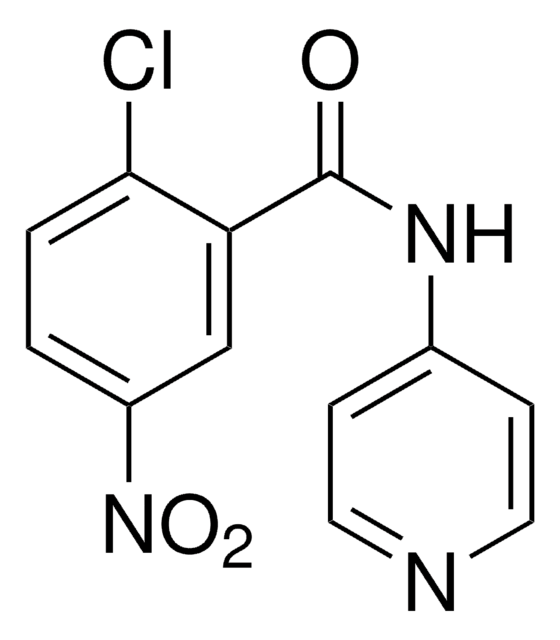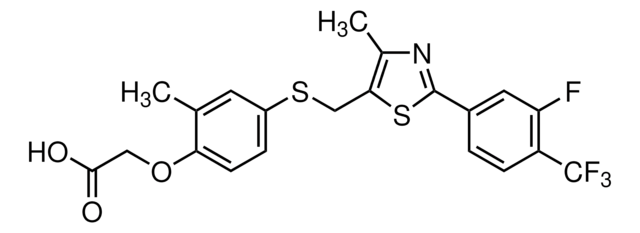T2573
Troglitazone
≥98% (HPLC), powder, PPARγ agonist
Synonym(s):
(±)-5-[4-[(6-Hydroxy-2,5,7,8-tetramethylchroman-2-yl)methoxy]benzyl]-2,4-thiazolidinedione, CS-045
About This Item
Recommended Products
product name
Troglitazone, ≥98% (HPLC)
Quality Level
Assay
≥98% (HPLC)
form
powder
color
white to off-white
solubility
DMSO: 20 mg/mL
SMILES string
Cc1c(C)c2OC(C)(CCc2c(C)c1O)COc3ccc(CC4SC(=O)NC4=O)cc3
InChI
1S/C24H27NO5S/c1-13-14(2)21-18(15(3)20(13)26)9-10-24(4,30-21)12-29-17-7-5-16(6-8-17)11-19-22(27)25-23(28)31-19/h5-8,19,26H,9-12H2,1-4H3,(H,25,27,28)
InChI key
GXPHKUHSUJUWKP-UHFFFAOYSA-N
Gene Information
human ... PPARA(5465) , PPARG(5468)
General description
Application
Biochem/physiol Actions
Features and Benefits
Preparation Note
Storage Class Code
11 - Combustible Solids
WGK
WGK 2
Flash Point(F)
Not applicable
Flash Point(C)
Not applicable
Personal Protective Equipment
Certificates of Analysis (COA)
Search for Certificates of Analysis (COA) by entering the products Lot/Batch Number. Lot and Batch Numbers can be found on a product’s label following the words ‘Lot’ or ‘Batch’.
Already Own This Product?
Find documentation for the products that you have recently purchased in the Document Library.
Customers Also Viewed
Articles
Glucose metabolism is regulated by the opposing actions of insulin and glucagon. Insulin is released from pancreatic ß cells in response to high blood glucose levels and regulates glucose metabolism through its actions on muscle, liver, and adipose tissue.
Our team of scientists has experience in all areas of research including Life Science, Material Science, Chemical Synthesis, Chromatography, Analytical and many others.
Contact Technical Service


